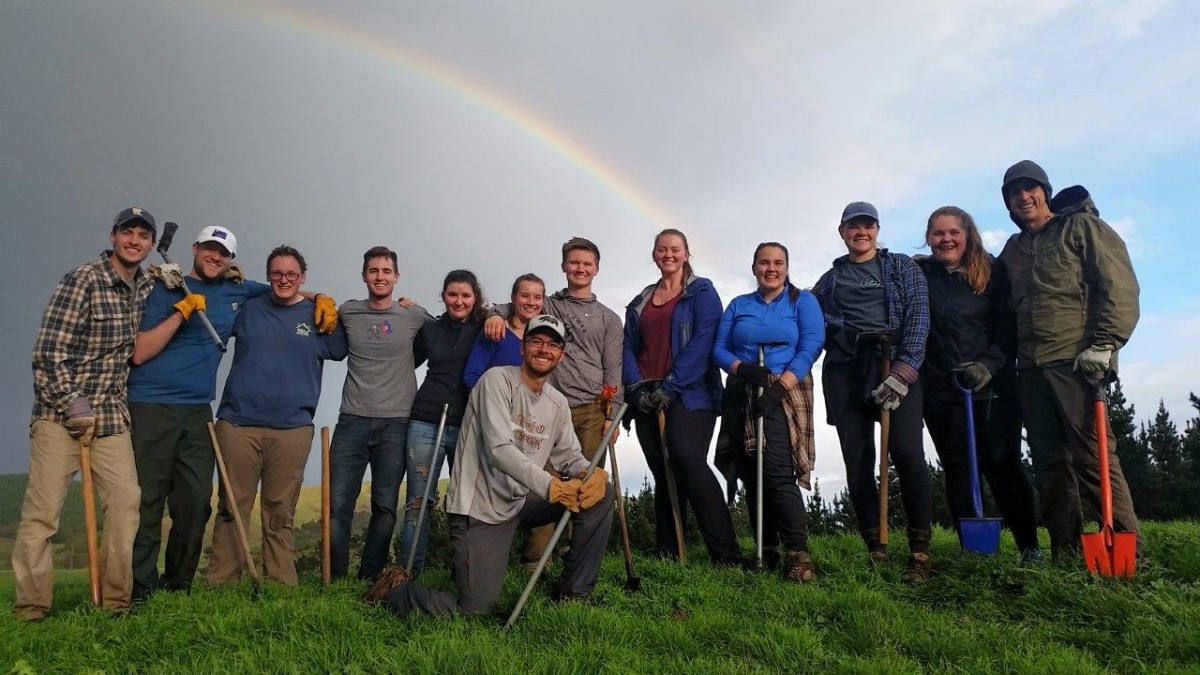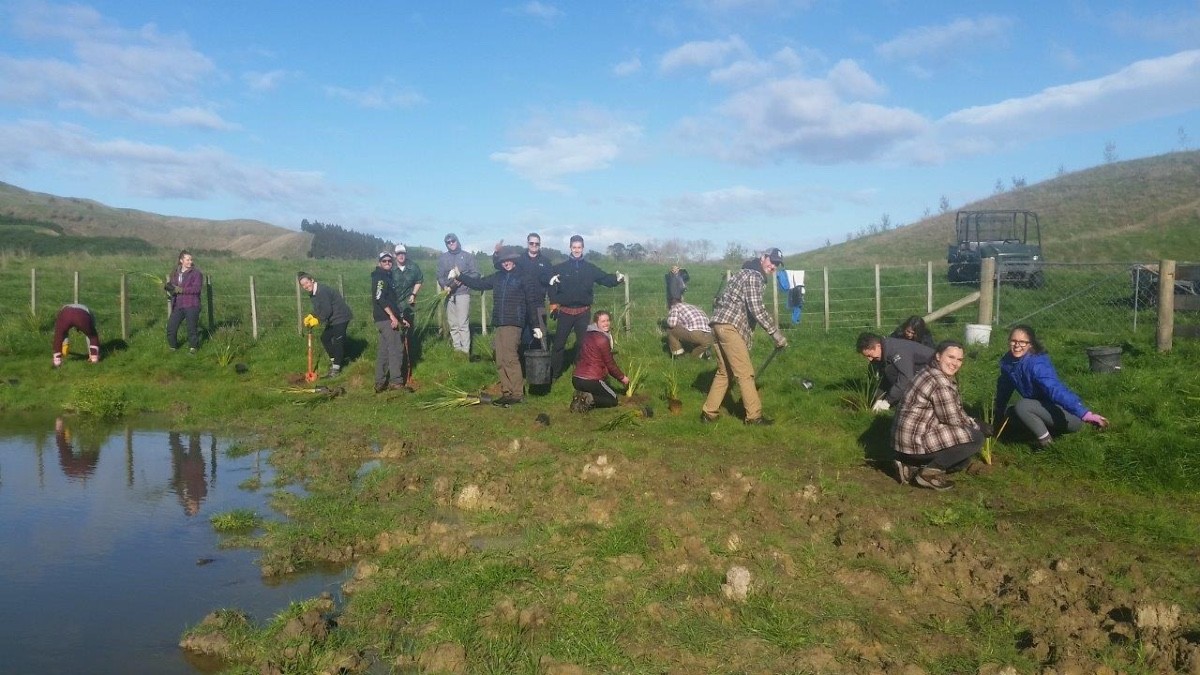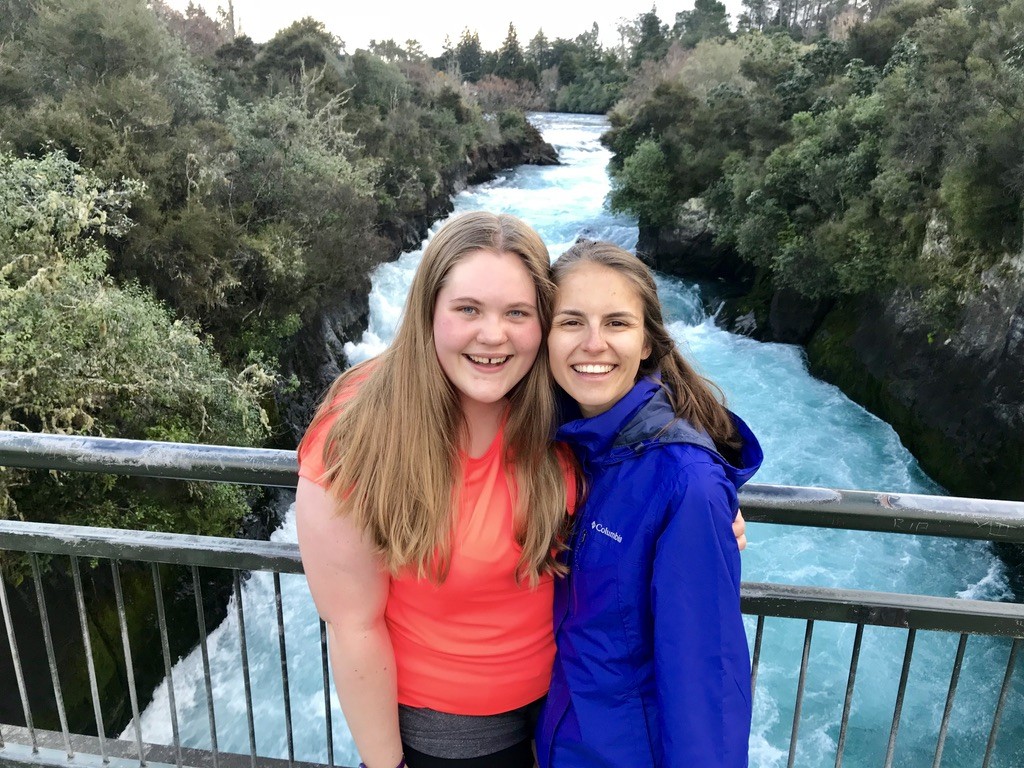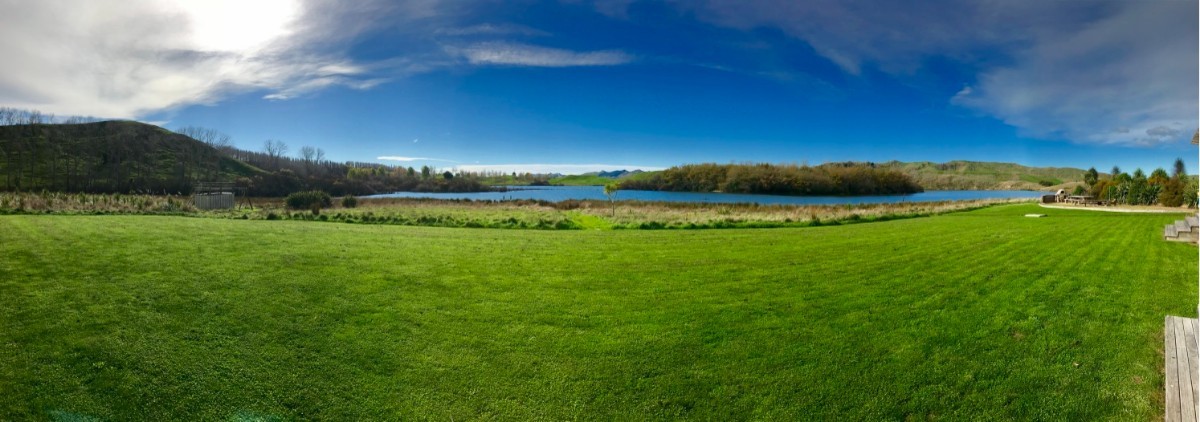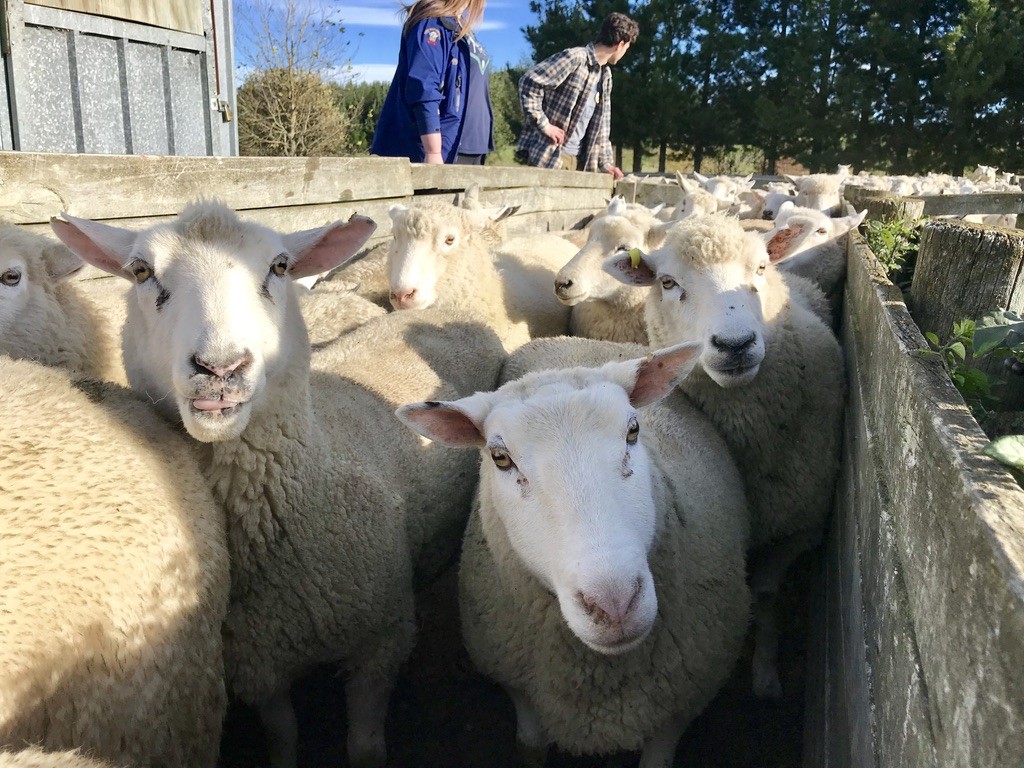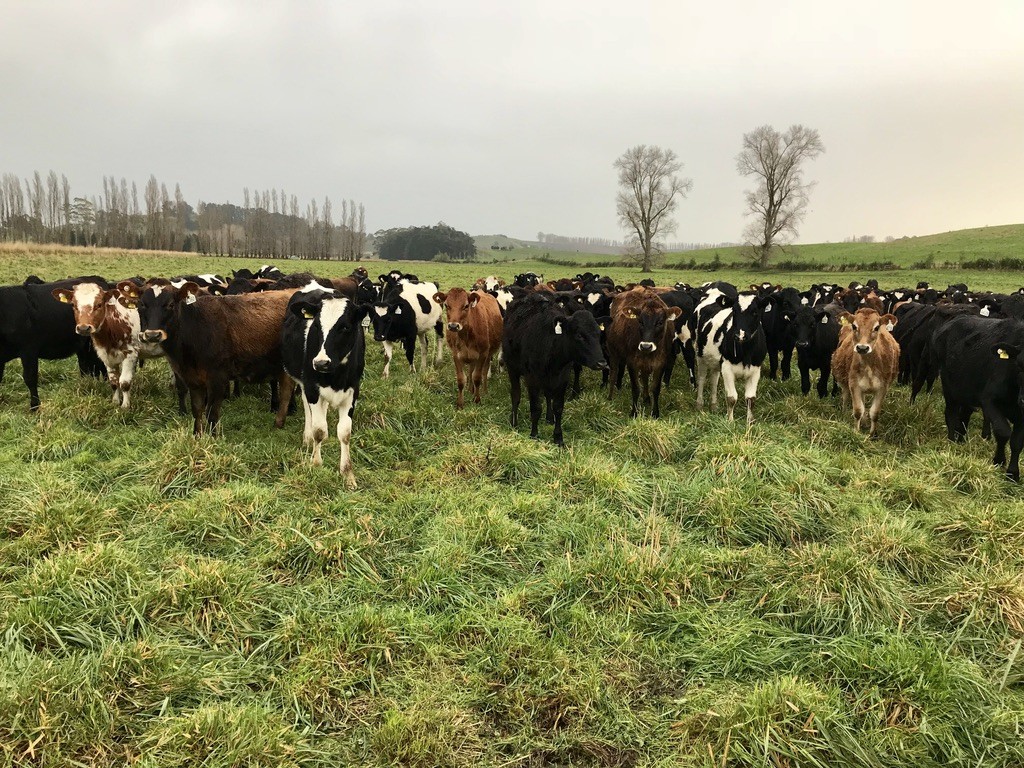Learning how New Zealand values nature and its protection is both inspiring and disheartening. It is impossible to not compare the Kiwi’s view on the environment to our own. In today’s political climate in the United States, the health of the environment is not a top priority. The EPA is defunded, our National Parks are at risk, and our president does not understand global warming. As an environmental science major, I have learned a lot of theory around the status of our global environment. It is really exciting to be traveling through New Zealand and see some of those theories implemented. Action like going plastic free, protecting native species, and permaculture are all being applied in here in New Zealand. Most people know the dangers of plastics and micro-plastics in the oceans and initiatives like Plastic Free Raglan are ways we can combat that threat. We are currently staying at the Hart Family Farm outside of Napier, in Central Hawkes Bay where they value living sustainably and bringing back native plants and species. This week we have planted and pruned several native trees on the farm. Revitalizing the native trees and increasing the biodiversity of an ecosystem is essential for sustainable growth. We overlook a beautiful lake at the farm, where we can see dozens of birds flying around in the morning. This is especially impactful because when Captain Hook first sailed to New Zealand he described the call of the native birds in the morning to be deafening. Hearing the return of so many native birds means that the revitalization of the land is working.
New Zealand’s prime minister, Jacinda Arden, values the protection of the environment. She helped to protect New Zealand against deep sea mining, which is the extraction of precious metals and minerals from the ocean floor. This new process extracts several thousand hectares of sea floor, disrupting the entire local ecosystem. Then, it discharges the soil, which can cloud over tens of thousands of hectares and disrupts all the life that lives there. It is important to recognize that while this process is gaining popularity around the world, New Zealand has rejected all proposals for deep sea mining off their shores. We learned about deep sea mining while we were in Reglan from Phil McKay. He ran KASM and Kiwi’s Against Sea Mining for several years and is now an advocate for positive global change. Places around New Zealand blend a love for the environment with a healthy respect. A few days ago we visited the Waikato river outside lake Taupo, which is home to the beautiful Huka waterfall and incredible hot springs. The river produces 65% of the North Island’s total energy amount of electricity via eight hydroelectric plants, two geothermal plants, and a thermal plant.
We have also learned a lot about permaculture, which is all about producing permanent agriculture. Much of the United States relies on monoculture, or single use agriculture. We learned from Rick, a man who has turned his land into a sustainable paradise, how he uses alternative methods to predict frosts and flooding. With a changing and unreliable climate, he uses the Tui bird to determine when to plant the next crops after the frost. Permaculture is a way to apply a sustainable mindset to the way in which we produce our food. Planting perennial crops, crops that can be harvested multiple times, is a way of providing long term solutions. Introducing perennial crops is a way of going beyond sustainability and focusing on regeneration. An important aspect of permaculture is creating a biodiverse ecosystem, in which flora and fauna can both flourish. Adding an array of native plants and animals can help ensure a healthy and prosperous ecosystem.
As a group, we have all mentioned to some extent how we plan to share and implement this new found knowledge. Many have mentioned starting their own garden in their back yard, and even more have discussed composting. Ideas of using on campus resources like College Ecology Club and the SLUG garden have been tossed around as well. Personally, seeing so many of my peers outside of the Environmental Science major passionate about making changes to leave a positive impact on our environment is inspiring. It is so easy to fall into the same routines we make every day, and intentionally making small changes to those routines can mean big differences in the environment. When I get home I would like to work on planting a herb garden, getting my house to compost, and utilizing the beautiful SLUG garden at UP. It only takes a little education to plant a seed in someone’s mind, and with the right cultivation that seed can become a forest.
Also, a shout out to my lovely ecosystem of the Pacific Northwest- even across the world in a beautiful country of New Zealand, I find myself thinking about the lovely pine trees I call home. Also a big thank you to Mom and Dad and all the other special people in my life, I love you all so much!
~Anna Wood-Gaines
